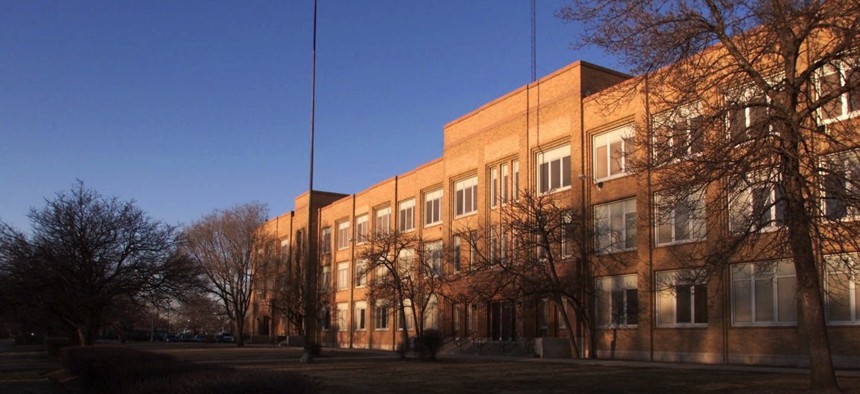We Need More Young Voices in Government Decisions

William Howard Taft High School in Chicago Ted S. Warren / AP Photo

Connecting state and local government leaders
When those who will inherit public issues and take the reins of power are disengaged, we have a problem. Chicago is trying to change that.
The young people of Chicago are not just the leaders of tomorrow. They are critical partners in creating solutions to the challenges we face today. How our government acts now will echo through generations, affecting us all. We cannot let the tone of today’s politics discourage our youth from starting an active civic life.
Nationwide, just 17 percent of 18- to 29-year-olds believe the country is heading in the right direction, according to the Harvard Institute of Politics. When those who will inherit these issues and take the reins of power are disengaged, it’s clear we have a problem. While there are promising, ongoing public and private civic education initiatives, we could use a broader focus on bringing new voices into government decision-making.
According to research from McCormick Foundation, Illinois millennials are less likely to vote in local elections or work within their communities to solve problems, compared with young people in other states. Public officials, businesses, educators and parents can do a better job teaching civics, encouraging civic participation, and showing that when you productively join the debate, great things happen. We can all do better.
Fortunately, good people are committed to improving youth civic engagement. Justice Sandra Day O’Connor started iCivics, a nonprofit creating digital games to teach civics that millions of students have played since 2009. The Mikva Challenge, a Chicago foundation co-founded by the late, great Abner Mikva, is working to improve youth understanding of the political process and has engaged with thousands of students.
Young Chicagoans are coming back to the table through a new hands-on civic education program called Envision Chicago. Recently, we marked the close of the Envision Chicago pilot program, co-created by the Office of the Chicago City Clerk and the OpenGov Foundation, a national nonprofit that promotes better government and online civic engagement. At the July 20 Chicago City Council meeting, we awarded four scholarships to public high school students who proposed ideas to improve city laws.
The pilot included four schools: Marine Leadership Academy, the Chicago Excel Academy, and Taft and Lake View high schools. Students learned positive engagement practices on a user-friendly website that explains the Chicago Municipal Code. Eighty-six students dove in, discovered laws covering issues they cared about then started proposing changes.
The results are promising. It’s clear that when government meets students on their terms, and respects their voices, great things can happen.
One student thought school property hours should be extended so kids can have a safe space after hours. Another addressed community poverty with increased wages, and there was even an idea to improve identification of pets.
No single idea or program will solve the issue of civic engagement. We need an ongoing commitment to bring together young people and government.
This fall, Chicago public school students will be required to complete two semesters of civic education. We will look to help more Chicago Public Schools adopt the model of Envision Chicago and incorporate direct civic engagement into their curriculum.
It is up to all Chicagoans to foster civic engagement in our young people. It is our job to teach them how to positively engage, while encouraging them to speak out on issues that matter to them. The only way we can find solutions that work for everyone is to address our shared challenges, together.
Susana Mendoza is the city clerk of Chicago and Seamus Kraft is executive director of the OpenGov Foundation.

NEXT STORY: Drone forensics boosts UAS defense




